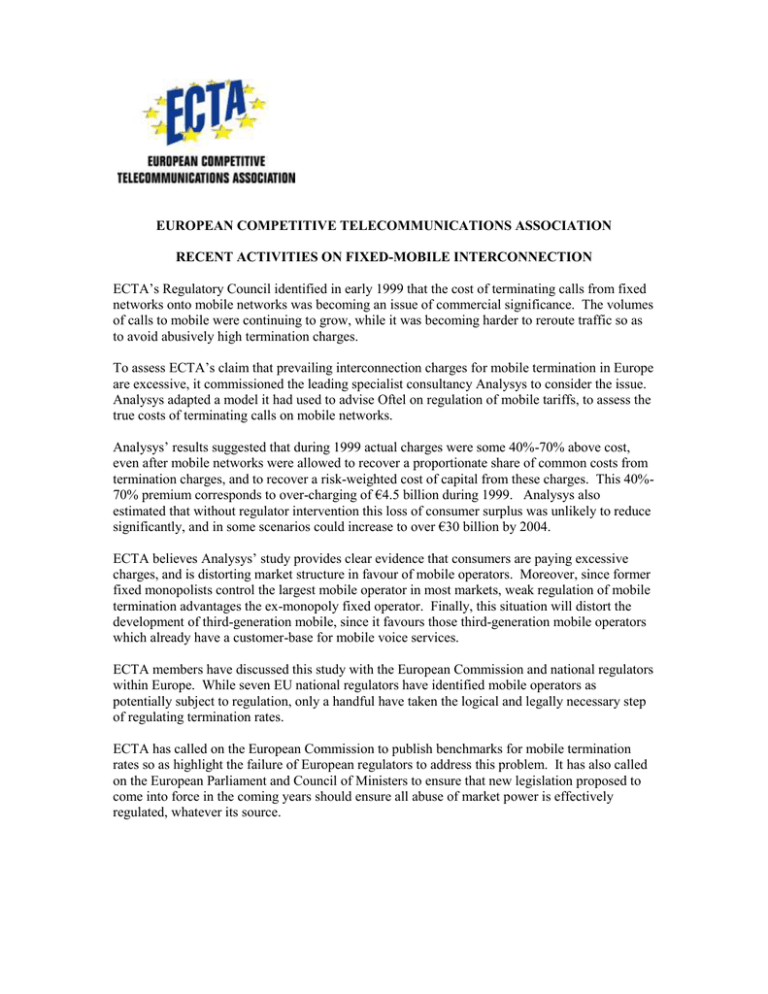EUROPEAN COMPETITIVE TELECOMMUNICATIONS ASSOCIATION RECENT ACTIVITIES ON FIXED-MOBILE INTERCONNECTION
advertisement

EUROPEAN COMPETITIVE TELECOMMUNICATIONS ASSOCIATION RECENT ACTIVITIES ON FIXED-MOBILE INTERCONNECTION ECTA’s Regulatory Council identified in early 1999 that the cost of terminating calls from fixed networks onto mobile networks was becoming an issue of commercial significance. The volumes of calls to mobile were continuing to grow, while it was becoming harder to reroute traffic so as to avoid abusively high termination charges. To assess ECTA’s claim that prevailing interconnection charges for mobile termination in Europe are excessive, it commissioned the leading specialist consultancy Analysys to consider the issue. Analysys adapted a model it had used to advise Oftel on regulation of mobile tariffs, to assess the true costs of terminating calls on mobile networks. Analysys’ results suggested that during 1999 actual charges were some 40%-70% above cost, even after mobile networks were allowed to recover a proportionate share of common costs from termination charges, and to recover a risk-weighted cost of capital from these charges. This 40%70% premium corresponds to over-charging of €4.5 billion during 1999. Analysys also estimated that without regulator intervention this loss of consumer surplus was unlikely to reduce significantly, and in some scenarios could increase to over €30 billion by 2004. ECTA believes Analysys’ study provides clear evidence that consumers are paying excessive charges, and is distorting market structure in favour of mobile operators. Moreover, since former fixed monopolists control the largest mobile operator in most markets, weak regulation of mobile termination advantages the ex-monopoly fixed operator. Finally, this situation will distort the development of third-generation mobile, since it favours those third-generation mobile operators which already have a customer-base for mobile voice services. ECTA members have discussed this study with the European Commission and national regulators within Europe. While seven EU national regulators have identified mobile operators as potentially subject to regulation, only a handful have taken the logical and legally necessary step of regulating termination rates. ECTA has called on the European Commission to publish benchmarks for mobile termination rates so as highlight the failure of European regulators to address this problem. It has also called on the European Parliament and Council of Ministers to ensure that new legislation proposed to come into force in the coming years should ensure all abuse of market power is effectively regulated, whatever its source.

